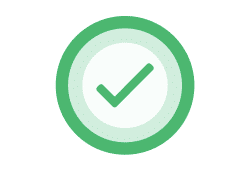As students and parents, we often deal with the apprehension of making the right decision; even more so, when it is with regard to education. Shifting a child from a CBSE/ICSE school to an IB school after Grade 10 is one such decision. Most high school students in India study under the aegis of the CBSE, ICSE or State Boards. However, recently, we have seen a huge presence of schools which offer the IGCSE, A Levels and IB Programs which are conducted by International Boards.
IGCSE, established by the University of Cambridge International examinations, is recognized worldwide for its emphasis on student centric education. It is designed to be taught as a two year course for students in Grades 9 and 10. During the two years, the teachers use different methods of assessment including course work, practical exercises, oral and listening tests, project work and written examinations. Post IGCSE, students can opt for A/AS levels or IBDP for their plus 2.
The IB programs were founded by The International Baccalaureate Organization which is a non-profit educational organization with headquarters in Geneva, Switzerland. It runs three programs:
1) Primary Years Program from Kindergarten to Grade 5
2) Middle Years Program from Grades 6 to Grade 10
3) The Diploma Program for Grades11 and 12
Both CBSE/ICSE and IB offer quality education. CBSE/ICSE offers a relatively theoretical model of education which is well suited for students preparing for college entrance exams in India, and is also reputed and recognized worldwide. The Grade 12 exams are scheduled in March to enable students to join college in July as per the Indian system.
The IB program curriculum consists of a range of subjects incorporating a global context of knowledge, and encourages an application-based methodology of assessments and learning. The inquiry, research and writing oriented IBDP program is accepted by universities around the world as a sound foundation for college level studies.

Switching from a CBSE/ICSE school to an IB affiliated school
Students who shift from a CBSE/ICSE school to an IB affiliated school may feel challenged by the curriculum and the systems of learning. IBDP students are graded on a total score of 45. They are marked from 1 - 7 in six subjects with the cumulative maximum being 42. The Extended Essay and Theory of Knowledge grades contribute to adding the remaining 3 points. Students can choose their subjects from six groups with three Higher Level (HL) and three Standard level (SL) subjects. This is a basic explanation with some other options also available. A new IBDP Math cohort has been introduced for students preparing for Fall 2021- Mathematics: Analysis and Approaches (AA) and Mathematics: Applications and Interpretation (AI). The Analysis and Approaches HL is accepted for Science, Technology and Engineering courses.
A thorough self-analysis by a student enables a confident premise to initiate the shift; some questions which could throw light in the right direction are:
1) Do I seek deeper knowledge about the topics I study?
2) Do I enjoy reading books for recreation?
3) Do I question what I learn in class?
4) Do I seek a wider, global scope of exploration while learning?
5) Do I enjoy inquiry based assignments?
6) Do I analyze facts in a balanced manner before arriving at an opinion?
7) Do I have good writing skills?
Once the decision to move to IBDP for Grades 11 and 12 is taken, it needs to be supported with appropriate preparation. It is advisable for parents and students to gather information through research and interactions with IB students/parents to have a clear understanding about what would be required from a student in an IB school. List out the facts and create an action plan to bridge the difference. Reading, research, analysis, writing and time management skills should be actively developed for a successful conversion to the new system. Parents and students should have frequent conversations at home about the progress of the student, and maintain regular communication with teachers, counselors and coordinators to address queries and seek advice.
Students who have studied both- the CBSE/ICSE and IB curriculums- share that being informed and consistent is helpful. Also, asking for help without hesitation is important to ensure support from all resources available in school and at home. The quantity of work needed for excelling in either curriculum is not very different- just a shift in approach is needed. Ultimately, the Board of Education does not matter as long as students understand the importance of sincere work reflected by excellent grades.








